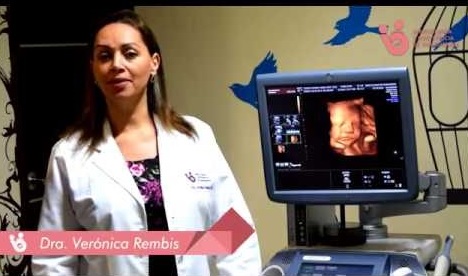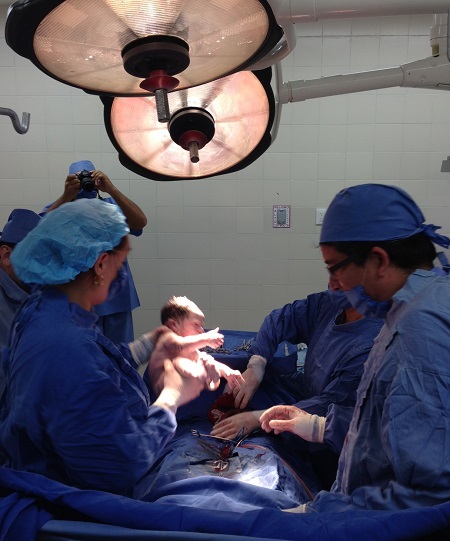Having a baby seems like something easy and natural. A woman gets pregnant, waits to the due date and gives birth.
If it is a natural birth (without a surgery), the woman usually goes home after a couple days and everything is smooth and easy.
However, there is another kind of pregnancy, known in medicine as “high-risk pregnancy”, where many conditions are involved leading to complications and nothing to do with “smooth and easy”. This happens when the baby has an increased chance of health problems due to mother’s conditions such as:
• Diabetes
• High blood pressure
• Cancer
• Kidney diseases
• Epilepsy
• Alcohol abuse
• Smoking
• Drugs
• Multiple pregnancy
• Previous miscarriages
• HIV or other sexual transmitted infections
• Heart problems
• Asthma
• Lupus
• Arthritis
Modern medicine has increased the longevity as well as the functional status of women who have systemic diseases.
This has resulted in many women reaching childbearing age with successful pregnancies. Recently, we have seen in the news, famous people such as Janet Jackson giving birth for the first time at 50 years old!
In vitro fertilization has its own impact in this phenomenon. The end result is a steady increase in the number of women requiring high-risk obstetric and anesthetic care to successfully maneuver these individuals through pregnancy, labor, and delivery.
Risk in pregnancy relates to events which lead to perinatal morbidity and mortality. Numerous risk scoring systems have been devised to bring attention to risk factors so that problems can be prevented, identified and treated.
However, by carrying out very few fundamental assessments at regular antenatal office visits: checking blood pressure, testing urine for protein, measuring the symphysis to fundus height and carefully establishing the expected date of confinement during the first trimester, the principal causes of perinatal morbidity and mortality—intrauterine growth retardation, prematurity, congenital anomalies, infection, placental abruption and meconium aspiration—can be properly identified and treated.
“Appropriate perinatal management of the very premature fetus/neonate (less than 34 week gestation) is a critical factor which will influence outcome”, Dr. Verónica Rembis, explains. “Whenever possible the mother should be transferred to a centre equipped and staffed for all necessary intrapartum and neonatal care, to minimize the risk of adverse outcome: postnatal transfer of the deteriorating, sick, small neonate”.

Dr. Rembis, recognized obstetrician established in Merida, Yucatán. (Photo: ginecologiavanguardia.com.mx )
Dr. Rembis is a recognized obstetrician established in Merida, Yucatán; specialized in complicated cases and she is always careful in following the next steps:
• Screening at 11-13 weeks
• The pregnancy is evaluated with an ultrasound and blood tests
• If necessary, amniocentesis or DNA fetal tests will be conducted too
• Ultrasound at 18-22 weeks
What should you expect with a high risk obstetrics program?
More visits to the doctor, increased monitoring of baby’s health, diagnostic testing, if appropriate, possible hospitalization during pregnancy, frequent ultrasounds and possible visits to other specialized doctors depending on your condition (physicians specializing in maternal-fetal medicine, ultrasound unit, nutritionists, pediatric surgeons and cardiologists, neonatologists and geneticists).
If you are considering a pregnancy, you should also think in previous consultation to check what is your health condition, especially if you feel identified with any of the problems mentioned above. Do not be scared. There are many advances in science and many solutions that can be analyzed with a correct diagnosis.
Be cautious if you are considering an assisted treatment to get pregnant. Technology is great but multiple embryos implanted could lead to a multiple pregnancy, considered on the top of high risk pregnancies not only for the babies but also for the mother.
Healthy diet and quitting all the risk substances such as alcohol and cigarettes are also mandatory points that the mother should take into consideration.
Most important, do not panic and contact José Enrique Lixa for any doubts or questions.
By José Enrique Lixa
Click here for a full list of highly qualified specialists in Mérida, Yucatán
For more information on Medical Tourism go to http://www.yucatanhealthcare.com/?lang=en
 José Enrique Lixa has a marketing degree from Mérida’s Universidad Marista.
José Enrique Lixa has a marketing degree from Mérida’s Universidad Marista.
He is a member of the Parque Tecnia Anáhuac entrepreneurs network with 10 years of experience as consultant and promoter of international business in the State of Yucatan.
Exhibitor at more than 50 international events promoting Yucatan.
Manager and facilitator of Medical Tourism in the State of Yucatán
Collaborator and adviser to the Canadian Healthcare Council based in Ottawa.
Collaborator of the local company Yucatán Medical Services.
Active participant since 2013 in the events of the Medical Tourism Association, Destination Health Canada and other Medical Tourism Congresses in Mexico.
- Email: [email protected]
- Ph. +52 1 9991 75 00 53



